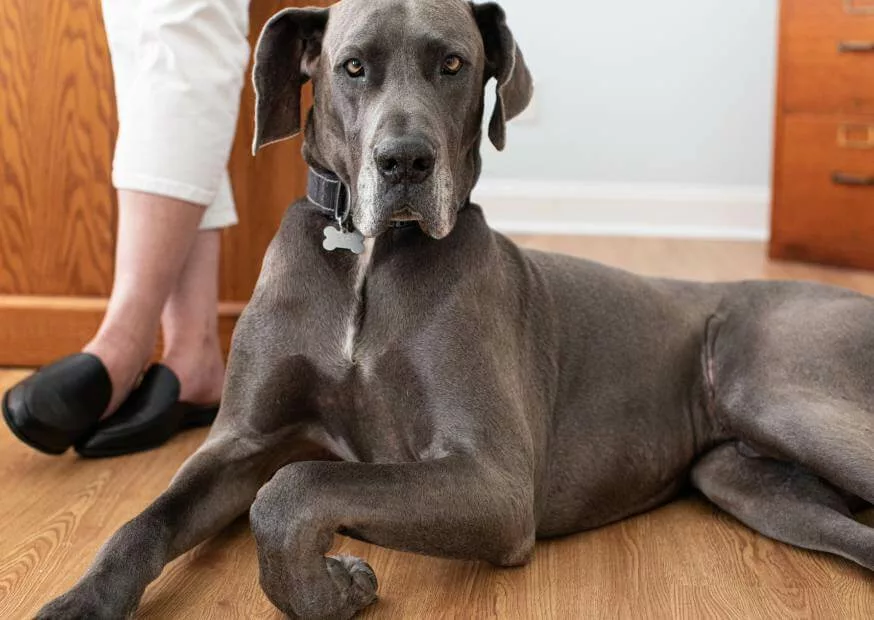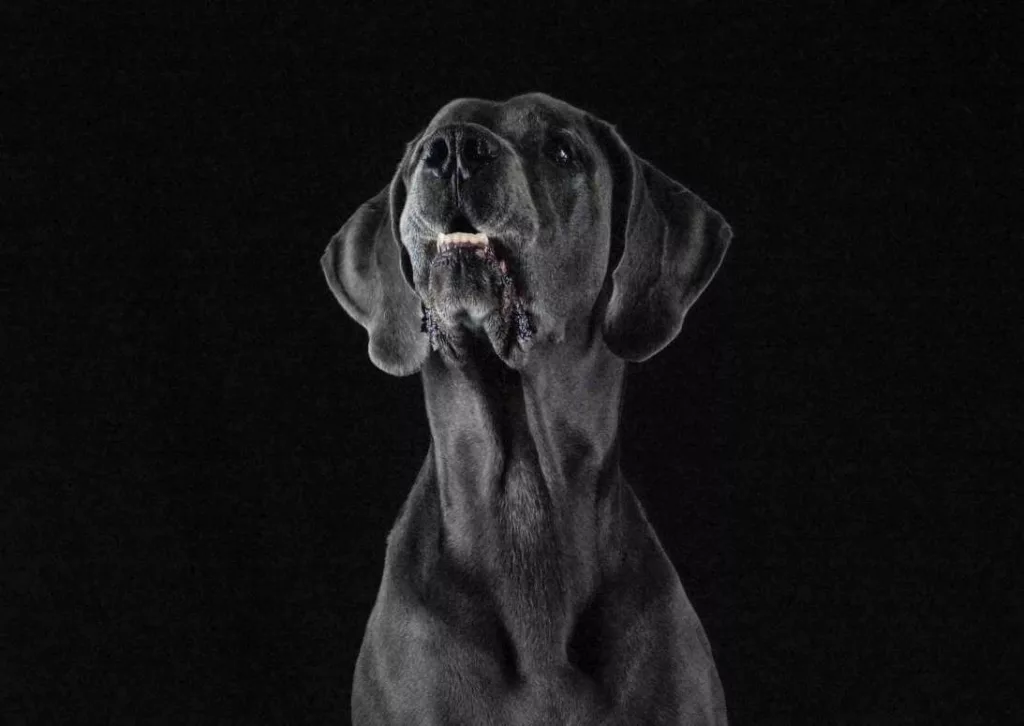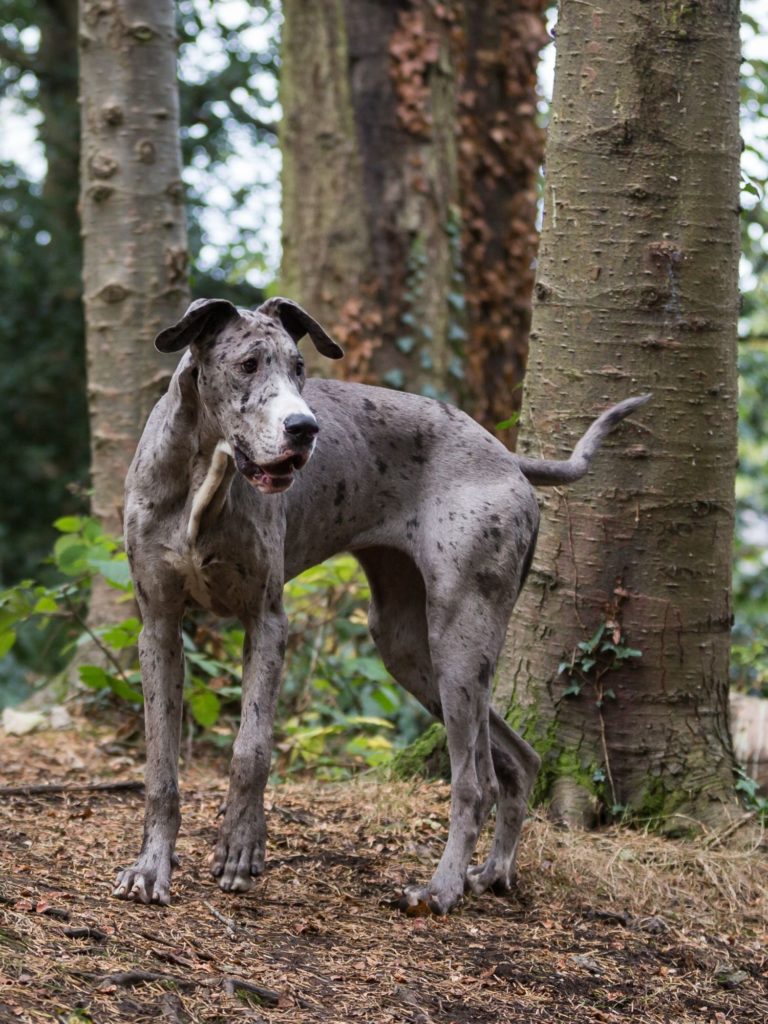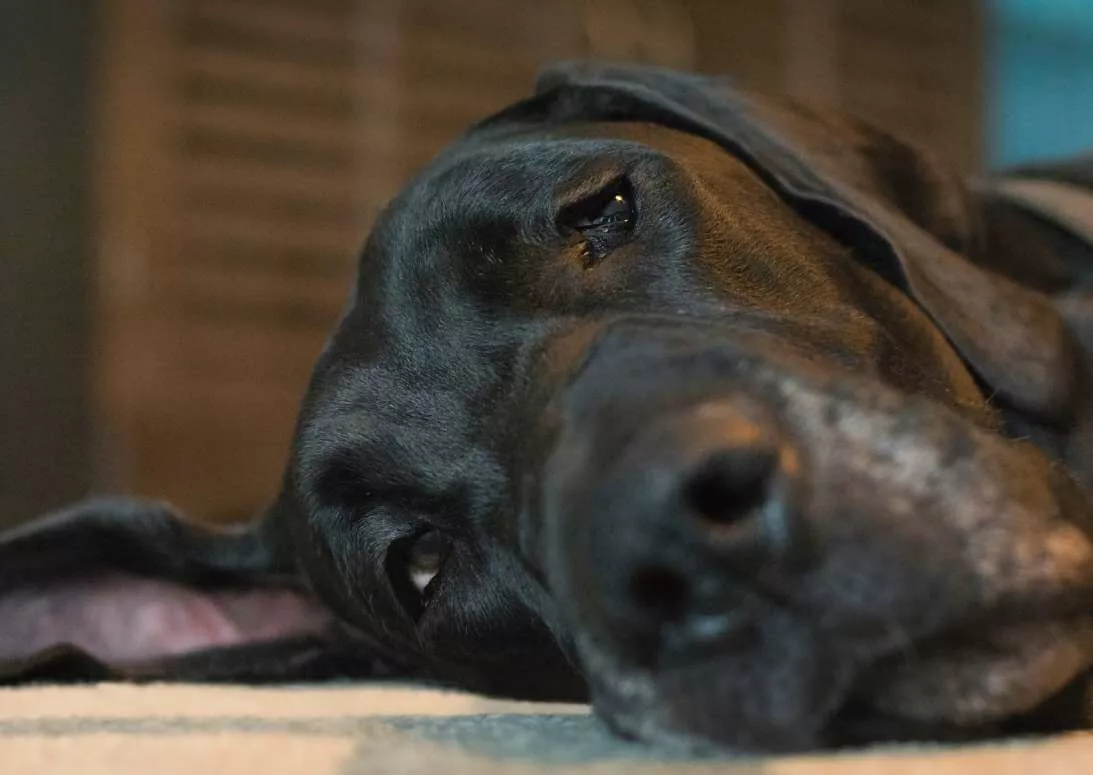We don’t judge here. Rehoming a dog is a thoughtful and responsible decision that requires careful consideration and dedication. It’s an act that comes with a lot of emotions, negative opinions, and fear.
While it may be a challenging choice, various circumstances such as changes in living situations, health concerns, or unforeseen life events may necessitate finding a new loving home for a Great Dane. We recognize that making this choice is often a responsible and selfless act that prioritizes the best interests of the pet, creating an opportunity for them to thrive in an environment better suited to their needs.
If you’ve found this blog post, it may be because you are thinking about rehoming your Great Dane.
There are legitimate reasons to need or want to do this; our goal here is not to judge but to help! If you are looking to find a new home for your Great Dane or are considering surrendering your Great Dane to a rescue, read on for ideas and need-to-know information.

Rehoming a Dog & Negative Opinions
Rehoming a dog can make you feel guilty. People want to make you feel as if you are doing something wrong, or that you are a bad person. Don’t let them.
If you have carefully considered the decision to rehome your dog, you should not feel guilty or bad about the choice. We have found that this choice often benefits the pet, as they will be in an environment more suited for them.
There is one exception to this, however. If you are rehoming a previously loved senior dog to make room for a puppy, you should feel guilty. That is never ok.
But if you are moving, struggling to have enough time or resources for your pet, or have a medical condition that requires your home to be free of pets, read on. We’re going to show you how to make this move responsibly.
1 – Check With The Original Breeder or Rescue
Sometimes the most simple solution is the one many tend to forget.
Depending on where your Great Dane originally came from, you need to check with your breeder or your rescue first! Most rescues and breeders require that the pet is returned to them if you feel at any time that you cannot care for it.
Ethical breeders will always have a lifetime return guarantee. They never want to see a dog of theirs end up in rescue at any age and will take the dog or help you find an appropriate home.
If your breeder or rescue is unethical and will not act in the best interest of your pet, we support you in finding alternatives.
2 – Be Honest About Training Problems
One of the most common reasons people rehome their pets is because of training issues.
It’s not unusual for people to say that they are at their “wit’s end” and can no longer deal with the pooping, peeing, barking, lunging, biting, or destruction.
If you need to rehome your Great Dane because of issues with training and socialization, be honest with the people who will be taking your dog.
While this can make it harder to find a suitable home that understands these issues, your transparency will ensure that your pet ends up in the type of home willing to work with it.
The rescue can provide training resources, the breeder will want to know, and a new home will be much more likely to keep the dog if they know what they are getting.
It may be easier to find a new home for your Great Dane if you gloss over the fact that he tends to bolt out doors, mark furniture, and nip children, but these things are extremely important for the new owners to be aware of.
If training issues are the reason that you need to rehome your Great Dane, that is ok.
Great Danes are not always the right fit for people, and poor breeding practices have led to many dogs with serious temperament problems.
It’s okay to acknowledge that you cannot help your dog or may not be the right home. We do however encourage you to consider first working with a highly qualified trainer.
Sometimes it is just a matter of making tiny changes to your routine and training communications!
3 – Special Considerations for Rehoming Aggressive Dogs
Aggression and bites are serious. A bite can be anything from a little nip to a full-on attack with puncture wounds or intent to kill.
Most aggression is based on fear. Some common and preventable examples are a Dane that bites a child who tried to sit on him, or a Dane that bites another dog over a toy or bone (resource guarding).
Some aggression and bites are based on problems with neurology, training, or even physical health.
Great Danes are NOT supposed to be aggressive in any way, so this is a serious fault of temperament (poor breeding practices), genetics, health, and environment (training & socialization).
Be very honest with the breeder or rescue about this. What led to the bite? How severe was it?
For many dogs, especially in areas with crowded municipal shelters, a bite history can be a death sentence (even if the bite resulted from an unfair event). If your Great Dane has bitten or shown aggressive tendencies, find a 501c3 rescue instead of surrendering to the shelter.
Most rescues will not take aggressive Great Danes, but some are insured and equipped to do so. Call around.
If your Dane is from a breeder, let them know about the aggression you’ve seen. Quality breeders don’t want to see aggression showing up in their lines and will want to address it.
For some particularly aggressive dogs, behavioral euthanasia is a compassionate choice. Read more about this HERE. This practice comes with heartbreak, but in many situations, it’s far more humane than sending an aggressive dog to spend its last days in fear at a shelter or being bounced around from home to home.

6. Peer to Peer Dog Rehoming
After you’ve checked with your breeder and/or rescue, you may be looking to rehome your dog in a direct peer-to-peer situation.
Finding the right home for your Great Dane can help you feel better about the process of rehoming, but watch out! There are some pitfalls that you want to avoid.
Some people won’t have your Dane’s best interest at heart.
Think the same way that a dog rescue does and be choosy and thorough.
We’ve included some guidelines and best practices below to consider when rehoming your Dane to another person.
Ask for References
When you find somebody interested in taking your pet, ask them for references! Call their veterinarian, too, and make sure that they’ve been keeping their pets healthy and up to date.
Don’t Rehome to Breeders. Instead, Spay & Neuter!
Unless you are rehoming a Champion show dog, you are likely rehoming a dog that should never be bred.
Backyard breeders will look for rehoming posts of intact dogs (not spayed or neutered) so they can buy them for cheap or free and use them in their breeding program. All this does is perpetuate the poor temperaments and health issues that put so many dogs into rescue in the first place.
Even if you are having to move and need to rehome a well-behaved, healthy, and wonderful family dog your dog should NOT be bred.
Do NOT rehome your dog to somebody that would breed him or her!
We know of a very ‘popular’ backyard breeder in Missouri who runs a same-named rescue on the side. His ‘rescue’ uses rehomed dogs for breeding. This is an unacceptable practice and extremely shady to boot.
If you are rehoming peer-to-peer, spay or neuter your dog in advance OR require that they sign a spay/neuter contract where they agree to complete the procedure within a certain time frame.
Charge a Rehoming Fee
This isn’t about making money on your dog.
It’s about making sure you rehome your dog to somebody serious.
When a purebred dog is listed for ‘free’, lots of window shoppers (and backyard breeders) come along. Those are not often good homes for your dog.
If you are uncomfortable collecting this fee, ask the new owners to donate to your local Great Dane Rescue. Verify the donation with the rescue before placing your dog.
This fee is NOT about recouping costs you incurred while caring for the dog (training, surgery, transportation, breeder fees, registration fees, etc.). All of those are a loss.
At a minimum, we recommend charging a $500 fee when rehoming your Great Dane.

Be Picky About the New Owners
Be choosy about the new owners, even if that means turning people down. We know you may be desperate to give your dog up, but it’s much more ethical to find the right home in the process.
Be thoughtful about the type of home that would be a good fit for your dog.
Is your dog good with children?
Does your dog need somebody who is home a lot?
Does your dog need somebody with training experience and a tall fence?
ASK QUESTIONS! The right home will be willing to answer and prove themselves.
Require a Rehoming Contract
We recommend at minimum a simple contract that protects both parties. In the contract, cover at least the following;
- Names & addresses.
- Description of the dog, including color, height & weight, AKC registration, age, and breeder information.
- Information on if the dog has been spayed or neutered and had a gastropexy done.
- Spay or neuter requirements
- No breeding allowed
- Information on where the dog must go if the new owner cannot keep it (will you take it back? Do you want them to surrender to a rescue?
- An outline of communication expectations. Do you want updates and photos? How often?
For the new owners, make sure that you also include:
- Previous veterinarian information & records (including vaccines).
- Microchip # and transfer information.
- Food, so the dog can transition better instead of switching foods immediately.
If you have a pregnant Great Dane that you cannot keep or don’t know how to help, we highly recommend speaking with a Great Dane rescue. Many are willing to work with you to find homes for the puppies and make sure they are well cared for.
We believe there is a time and a place to rehome Great Danes.
We encourage people not to judge each other; sometimes rehoming a dog to a more appropriate home and owner is the best thing for it.






